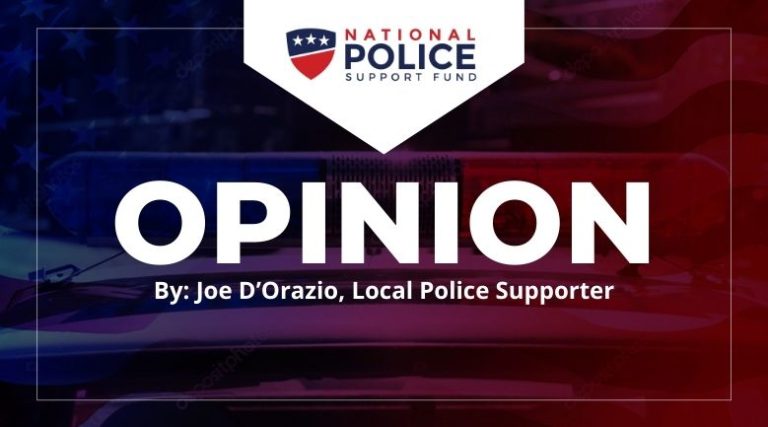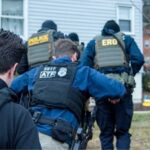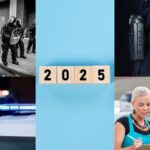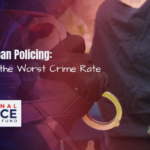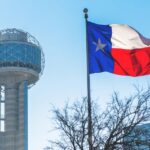In the later part of the last decade, I was studying criminal justice at a junior college in Aurora, Colorado, which is immediately east of Denver. At that time, the Denver public safety radio system was experiencing terrible interference from certain cell phone systems. There were many areas of the city where officers simply could not communicate. They couldn’t call for help, and even in areas where the system functioned, it often only functioned outdoors. I remember a standoff resulting from an armed robbery at an Albertson’s grocery store on south Broadway. In the news helicopter footage, you could clearly see officers sticking their radio antennas out of windows to try to communicate. EMS and Fire services were impacted just as badly. Fortunately, this was eventually fixed as the federal government recognized how dangerous the situation was and took it out of the hands of the city council. But relations between the police and the citizens were often so bad they had to slog through NIMBY opposition to the installation of basic radio infrastructure. I was in high school during Columbine, and I’ll never forget it, or the communications collapse it produced. The state of Colorado reacted by creating a statewide digital trunked radio system that was supposed to be a comprehensive solution and never lived up to the investment. Instead, we have a patchwork of a huge number of interoperability channels connecting different systems shared by various agencies. Strangely, the Colorado State Patrol, our highway patrol, is basically half a communications agency. They staff the rural centers that dispatch for hundreds of volunteer and small agencies. In the early morning hours, it seems that the CSP has more communications officers on duty than troopers.
As usual it was politics before lives, especially in Denver. The Denver Police was subjected tor a federal consent decree for some time, and there was always friction between the left-leaning city council and the police department, this despite the prominence of women and minority commanders in the Denver PD. The council found money to pave all the alleys in the city, but they let the radio system rot until the Feds intervened, citing national security interests. When I could I wrote editorials on the radio issues, and while DPD commanders were understandably reluctant to speak to a random college kid, the police union leadership encouraged my efforts. I wish I could have done more.
Now that Colorado cops have been deprived of the protection of qualified immunity and will be personally liable for errors made on the job, I’m very interested to learn more about what the city of Englewood (a southwestern Denver suburb that always backed their police force) has done to help provide liability coverage for their personnel. As far as I know, no one else has done a thing. A lot of officers quit or took retirement, and there was no input from the academies due to COVID shutdowns. I don’t know if the FOP has any plans, but I’d like to find out. I certainly hope they do. Here in Boulder, police staffing is down to sixty percent of normal.
This brings me to the recent tragedy in Boulder. I cannot deny my feelings of grief for those lost and my fury at the perpetrator. At the time of Columbine, there was no concrete tactical understanding of how to respond to an active shooter incident, especially one complicated by the presence of IEDs and a paucity of information. Such a thing had never happened before, so no plans had been made, and as I remarked earlier, because so many emergency responders came to the area to help, the emergency communications systems quickly became overwhelmed and unusable. (Technically, they lacked ‘surge capacity’, a vital feature of more modern systems.)
We should be extremely proud of our police officers and agencies. The lessons gleaned from Columbine have saved many lives, and the police were very attentive to learning from those sad events. Virtually every American police officer is now trained to respond to an active shooter by moving deliberately into danger, and engaging the perpetrator as swiftly as possible, to stop the threat. This approach saves lives and demands enormous courage and discipline of ordinary officers. These are typically patrol officers and not tactical specialists. This is another reason we must ensure every patrol officer in the nation has ready access to a patrol rifle, a type of assault rifle that gives the police a vital tool in suppressing active shooters.
Anyone who doubts the integrity and heroism of the police should look to Officer Eric Talley, who gave his life to protect the innocent people in that grocery store. Officer Talley had seven children. He did not hesitate to walk into grave danger to protect the citizenry.
On February 22nd, 2021, Governor Pritzer signed into law HB 3653, which covers a large array of police and criminal justice reform measures from eliminating cash bail to a ban on all police chokeholds. This Police Reform Bill is a sledgehammer when a light touch was needed.

